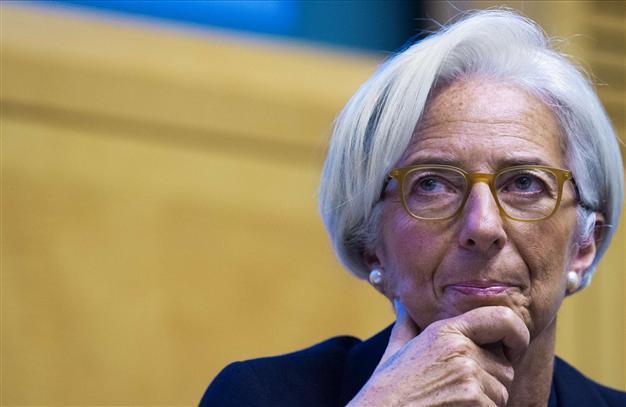IMF urges structural reforms for Turkish economy
ISTANBUL

International Montary Fund (IMF) Managing Director Christine Lagarde. AFP Photo
Despite continued growth in Turkey’s economy, the International Monetary Fund (IMF) has warned that the country's government must put forward structural reforms to continue economic momentum.Turkey’s economy has grown on average by 6 percent annually since 2010, but this has come at the expense of a persistently large external deficit, making the economy sensitive to changes in external financing conditions and risks are needed to be addressed with structural reforms, the IMF warned in a written report late Nov. 21.
“Macroeconomic policies have been too accommodative, inflation is high and well above the authorities’ target, real policy interest rates remain negative, and the exchange rate continues to be stronger than suggested by fundamentals. These imbalances are holding back growth potential and increasing risks. They need to be addressed with carefully sequenced macroeconomic policies and structural reforms aimed at increasing aggregate savings, competitiveness and potential output,” stated the IMF report.
The main risk for Turkey remains a capital flows reversal, associated with monetary policy normalization in advance economies or changes in the country risk premium, it said, adding that other risks center on slower European growth, geopolitical issues and the strength of the policy framework.
The IMF Executive Directors agreed that fiscal policy should play a bigger role in addressing external vulnerabilities and reducing the burden on monetary policy, while providing space for greater spending in priority areas. Accordingly, they supported the fiscal tightening envisaged in the 2015 budget and the substantial increase in the primary surplus within the 2015-17 medium-term program, although a few directors saw merit in a more ambitious pace of adjustment. The directors agreed that consolidation efforts should primarily focus on improving spending efficiency and limiting current expenditure growth while preserving capital investment.
While welcoming the monetary tightening in early 2014, the report generally called for a renewed focus on reducing the inflation rate, by setting and sustaining a positive real policy rate to reduce inflation and anchor expectations, read the statement.
The directors emphasized the importance of increasing national savings, particularly private savings and reducing reliance on external financing. They encouraged the authorities to move forward with the ambitious reform agenda included in the 10th Development Plan, giving priority to increasing private sector savings, improving competitiveness and the business climate, as well as sustaining education and labor market reforms to boost productivity.
















